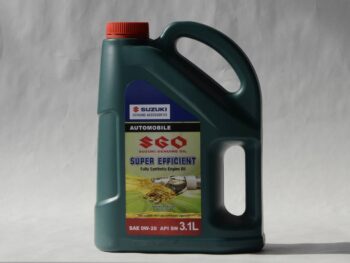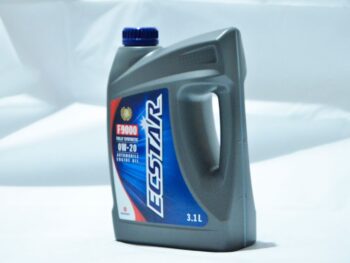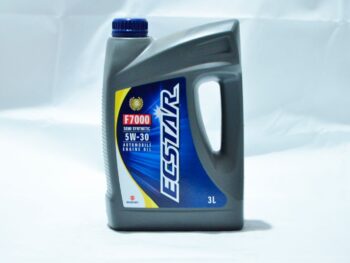Blog
OEM vs. Aftermarket Auto Parts: Making the Right Choice for Your Car

When it comes to maintaining and repairing your vehicle, the choice between genuine parts and aftermarket auto parts can greatly impact its performance and longevity. In this article, we’ll delve into the key differences between these two options—OEM (Original Equipment Manufacturer) and aftermarket parts—to help you make an informed decision for your car, whether it’s a Honda, Nissan, or Suzuki.
OEM: What Does It Stand For?
OEM stands for Original Equipment Manufacturer. In the automotive world, this refers to the manufacturer of the original parts used in the assembly of your vehicle. Genuine parts or genuine OEM parts are those that are made by the same company that produced your car, such as Honda genuine parts for Honda vehicles. These parts are designed to match the specifications of your car precisely, ensuring a seamless fit and optimal performance.
Aftermarket Auto Parts: Exploring the Options
On the other hand, aftermarket auto parts are produced by third-party manufacturers not affiliated with the original car manufacturer. These parts are designed to be compatible with a wide range of vehicles, making them widely available and often more affordable than genuine parts. Car parts and car accessories are examples of items commonly available in the aftermarket.
Quality and Compatibility: Genuine vs. Aftermarket
One of the primary concerns when choosing between genuine parts and aftermarket auto parts is quality and compatibility. OEM parts are engineered to the exact specifications of your vehicle, which ensures a perfect fit and reliable performance. Using Honda spare parts or Nissan parts from the original manufacturer can help maintain your car’s integrity.
Aftermarket parts, while more cost-effective, might not always meet the same quality standards. It’s essential to do thorough research and source aftermarket parts from reputable manufacturers to ensure compatibility and performance. For instance, if you’re looking for an air filter for your car, make sure the aftermarket option is designed to match your vehicle’s requirements.
The Price Factor: Genuine vs. Aftermarket
Cost is a significant consideration for many vehicle owners. Genuine parts, being produced by the original manufacturer, often come with a higher price tag. This reflects the precision engineering and research that goes into creating parts tailored to your vehicle. If budget constraints are a concern, aftermarket auto parts might seem like an attractive option due to their lower cost. However, keep in mind the potential trade-offs in terms of quality and compatibility.
Warranty Implications
Another aspect to consider is the impact of your choice on your vehicle’s warranty. Using genuine OEM parts is less likely to void your warranty, as the manufacturer can vouch for their quality and compatibility. However, using aftermarket parts could potentially void the warranty if those parts are found to be the cause of a malfunction or issue. It’s recommended to check your warranty terms and consult with your manufacturer or authorized service center before making a decision.
Convenience: Auto Parts Near Me
Availability and convenience are also vital factors. You might search for auto parts near me or an auto parts store near me to quickly find the parts you need. Both genuine and aftermarket parts can be found through local auto parts stores, authorized dealerships, and online retailers. However, it’s crucial to ensure the authenticity of the parts you purchase, especially when buying online.
Suzuki Genuine Parts: A Case Study
Let’s take a look at a specific example. If you drive a Suzuki vehicle, you might be wondering about the benefits of using Suzuki genuine parts versus aftermarket alternatives. Suzuki genuine parts are designed to meet the rigorous standards set by the manufacturer, ensuring that they integrate seamlessly with your vehicle. While aftermarket parts might offer a lower upfront cost, they could compromise your Suzuki’s performance and even lead to unexpected issues. You can buy all Genuine Car parts at PartEx by best prices.
Suzuki Genuine Oil 0W-20 – Super Efficient 3.1L
₨ 7,215Ecstar F9000 0W20 3.1L
Original price was: ₨ 6,511.₨ 6,100Current price is: ₨ 6,100.Ecstar F7000 5W30 3L
Original price was: ₨ 5,900.₨ 5,550Current price is: ₨ 5,550.
The Bottom Line
In the debate between OEM and aftermarket auto parts, there’s no one-size-fits-all answer. Your choice depends on factors such as your budget, your vehicle’s age, your warranty status, and your preferences for quality and performance. If you’re aiming to maintain your car’s optimal performance and resale value, genuine parts are usually the safer bet. However, if you’re looking to save money and are willing to invest time in researching and selecting reputable aftermarket options, you might find a suitable solution.
Remember, when choosing between genuine parts and aftermarket auto parts, it’s essential to consider the long-term implications for your vehicle’s health and performance. Whether you drive a Honda, Nissan, Suzuki, or any other brand, making an informed choice will contribute to the overall well-being of your car.




 Suzuki
Suzuki Honda
Honda Toyota
Toyota